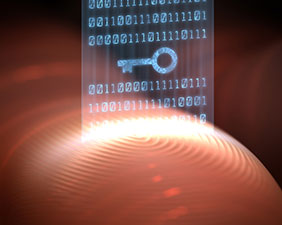Exploiting On-Chip Voltage Regulators as a Countermeasure Against Power Analysis Attacks (2017)

Non-invasive side-channel attacks (SCA) are powerful attacks which can be used to obtain the secret key in a cryptographic circuit in feasible time without the need for expensive measurement equipment. Power analysis attacks (PAA) are a type of SCA that exploit the correlation between the leaked power consumption information and processed/stored data. Differential power analysis (DPA) and leakage power analysis (LPA) attacks are two types of PAA that exploit different characteristics of the side-channel leakage profile. DPA attacks exploit the correlation between the input data and dynamic power consumption of cryptographic circuits. Alternatively, LPA attacks utilize the correlation between the input data and leakage power dissipation of cryptographic circuits.
There is a growing trend to integrate voltage regulators fully on-chip in modern integrated circuits (ICs) to reduce the power noise, improve transient response time, and increase power efficiency. Therefore, when on-chip voltage regulation is utilized as a countermeasure against power analysis attacks, the overhead is low. However, a one-to-one relationship exists between the input power and load power when a conventional on-chip voltage regulator is utilized. In order to break the one-to-one relationship between the input power and load power, two methodologies can be considered: (a) selecting multi-phase on-chip voltage regulator and using pseudo-random number generator (PRNG) to scramble the activation or deactivation pattern of the multi-phase voltage regulator in the input power profile, (b) enabling random voltage/scaling on conventional on-chip voltage regulators to insert uncertainties to the load power profile.
In this dissertation, on-chip voltage regulators are utilized as lightweight countermeasures against power analysis attacks. Converter-reshuffling (CoRe) technique is proposed as a countermeasure against DPA attacks by using a PRNG to scramble the input power profile. The time-delayed CoRe technique is designed to eliminate machine learning-based DPA attacks through inserting a certain time delay. The charge-withheld CoRe technique is proposed to enhance the entropy of the input power profile against DPA attacks with two PRNGs. The security-adaptive (SA) voltage converter is designed to sense LPA attacks and activate countermeasure with low overhead. Additionally, three conventional on-chip voltage regulators: low-dropout (LDO) regulator, buck converter, and switched-capacitor converter are combined with three different kinds of voltage/frequency scaling techniques: random dynamic voltage and frequency scaling (RDVFS), random dynamic voltage scaling (RDVS), and aggressive voltage and frequency scaling (AVFS), respectively, against both DPA and LPA attacks.

